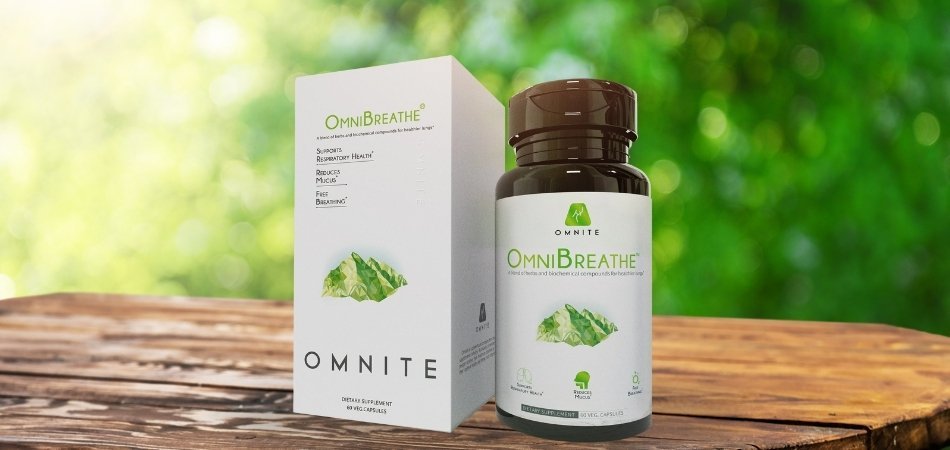It can be confusing to buy a respiratory supplement. There are so many choices, and it’s hard to know which one really works. It’s important to choose the right supplement to support your immune system and keep your lungs healthy.
But how do you choose the most suitable one? Therefore, you may ask, “What are the ingredients of a high-quality respiratory supplement?”
You should look for ingredients such as N-acetylcysteine (NAC), quercetin, vitamin C, vitamin D, zinc, elderberries, and eucalyptus. These ingredients help your lungs work better, lower swelling, and make your body stronger against sickness. Try to pick supplements that have the right amount of these ingredients and don’t have too many fake chemicals.
Keep reading to find out how each ingredient helps and which supplements are best for you.
What Ingredients Should I Look for in a High-Quality Respiratory Supplement: : 9 Must-Have Ingredients
Breathing should be easy, but sometimes our lungs need extra help. Respiratory supplements can support your lungs and improve breathing. Here are nine important ingredients that help keep your lungs strong and healthy.

1. Omega-3 Fatty Acids
Omega-3s are healthy fats found in fish oil and flaxseed. They help calm swelling in your lungs and airways. Supplements like Respiraid DHA are good options for lung support.
DHA and EPA are the main omega-3s that protect your breathing system. These fats help you breathe better, especially during allergies. Adding omega-3s can also lower irritation in the lungs.
2. Antioxidants (Vitamin C & E)
Vitamin C helps your body fight damage from pollution and smoke. It also strengthens your immune system and helps your lungs heal. Vitamin E works with vitamin C to protect your lungs.
Supplements like NAF Five Star Respirator Boost include both vitamins. These antioxidants clear your breathing path and help you stay healthy. They are very useful during cold or allergy seasons.
3. Anti-inflammatory Herbs
Herbs like turmeric, aniseed, and boswellia reduce swelling in the lungs. These herbs make it easier to breathe when you’re sick. They are often used in herbal supplements like Breathe-Free.
Dodson & Horrell’s blend includes these herbs for better lung function. They calm the body and improve airflow. You can find them in many natural remedies for breathing issues.
4. Mucolytic Agents (NAC & Bromelain)
NAC (N-acetylcysteine) breaks down thick mucus in your lungs. It helps clear the airways so you can breathe easily. Bromelain, found in pineapples, works well with NAC.
Lincoln Herbal Koff Syrup contains these ingredients to reduce mucus. These agents make coughing easier and more helpful. Mucolytics are good for people with blocked or tight chests.
5. Quercetin
Quercetin is a natural compound found in apples and onions. It protects your lungs from damage caused by pollution and stress. It’s great for reducing inflammation, especially in allergies.
It also helps your body fight harmful germs and viruses. Many capsules and tablets contain quercetin as a key ingredient. This makes it easy to take regularly for lung support.
6. Selenium
Selenium is a mineral your body needs in small amounts. It protects lung tissues and boosts your immune system. Foods like Brazil nuts and seafood have selenium naturally.
Supplements often add selenium for better lung repair. It keeps lung cells healthy and strong. It also helps your body fight off infections better and faster.
7. MSM (Methyl-Sulfonyl-Methane)
MSM is a form of sulfur that helps reduce swelling. It repairs body tissues, including those in your lungs. MSM also supports your joints and muscles.
This compound lowers irritation inside the lungs and makes breathing easier. It works well with other lung-support ingredients. You can find MSM in powder or capsule form.
8. Curcumin
Curcumin is the bright yellow part of turmeric. It helps fight swelling and protects cells from damage. It is strong and helpful for long-term lung care.
Supplements like Thorne Meriva 500-SF include curcumin for its benefits. It keeps the lungs clean and supports faster healing. Curcumin also helps with asthma and other lung problems.
9. Phytochemicals
Phytochemicals come from plants like nettle, echinacea, and astragalus. They support the lungs and help your body stay strong. They also improve your immune system naturally.
Coff-Less powder includes these plant compounds in its formula. These ingredients make it easier to breathe and recover. They work best when used regularly over time.
You can keep your lungs healthy and strong by choosing the right respiratory supplement. As you explore your options, consider trusted products like OmniBreathe, which include many of the key ingredients your lungs need. Look for these nine powerful components to support easier breathing and better overall lung health—your lungs will thank you!
How Do Respiratory Supplements Help Your Lungs?
Sometimes, breathing doesn’t feel as easy as it should, especially when you’re feeling sick or during allergy season. You might cough a lot, feel tightness in your chest, or get tired really fast. That’s when your lungs might need a little extra support. And that’s where respiratory supplements can help in simple, useful ways. Here’s how they help:

Better Breathing
Respiratory supplements can make it easier to breathe by helping your lungs work better. Some ingredients clear the airways, so air moves in and out more freely. This means less coughing and more comfort when you breathe. You’ll also feel less tired after simple things like walking or climbing stairs.
Less Mucus Buildup
Many people get heavy mucus when they’re sick, which makes breathing harder. Ingredients like NAC and bromelain help thin and clear out that mucus. When mucus gets out of the lungs, it’s easier to breathe and coughs become less painful. This also helps you heal faster from colds or chest infections.
Stronger Immune Support
Some respiratory supplements have vitamins and herbs that help your body fight off sickness. When your immune system is stronger, your lungs don’t have to work as hard. You’ll be less likely to get sick and more likely to recover quickly. This keeps your lungs protected and ready to handle more.
Reduced Swelling Inside
Sometimes, the inside of your lungs can swell, making breathing tough. Ingredients like turmeric, MSM, and quercetin help reduce this swelling. When the swelling goes down, your lungs feel more relaxed. This can really help people who have asthma or allergies.
Cell Protection
Your lungs can get hurt by dust, smoke, or even too much stress. Antioxidants like vitamin C and E protect lung cells from this damage. These vitamins help your lungs stay clean and work properly. They also help heal any small damage that might have happened inside.
Helps With Recovery
If you’ve been sick for a while, your lungs need time to heal. Respiratory supplements help speed up that healing process. They give your lungs the nutrients they need to repair themselves. This means fewer long-term problems and faster recovery from things like the flu or infections.
What to Avoid in Respiratory Supplements?
Not every supplement is good for your lungs, even if it says so on the label. Some products have things that can do more harm than good. That’s why it’s important to check the ingredients before using any respiratory supplement. Knowing what to avoid can help you stay safe and healthy:
- Artificial Colors: These add color but don’t help your lungs at all. Some can even cause allergies or make breathing problems worse.
- Too Much Sugar: Extra sugar in supplements may taste good but harms your body. It can also lower your body’s ability to fight illness.
- Harsh Preservatives: Some preservatives keep supplements fresh longer but may irritate your lungs. They can also trigger breathing issues in sensitive people.
- Unproven Herbs: Some herbs sound helpful but don’t have real proof behind them. They might mix badly with medicines or cause side effects.
- Very High Doses: More isn’t always better when it comes to vitamins. Very high amounts can hurt your body instead of helping it heal.
- Unknown Chemical Names: If you can’t read or understand the ingredient, it’s best to avoid it. Unknown chemicals may not be safe to take.
- Hidden Allergens: Watch out for dairy, soy, or gluten if you’re allergic. Even a small amount can trigger breathing or stomach problems.
Many people choose supplements to help with breathing, but sometimes they skip checking the causes. There are many reasons for a weak respiratory system, like pollution, infections, and even unhealthy habits. Taking a supplement without knowing the cause won’t always help. That’s why understanding both the problem and the solution is important.
When Do You Need to Use Respiratory Supplements?
Sometimes, you feel out of breath even when you’re not doing anything hard. Other times, your chest feels tight or heavy. Breathing should be simple, but it isn’t always that way. That’s when you might start wondering if something can help you feel better.
During Seasonal Changes
Cold or dusty air in certain seasons can make it harder to breathe. Some people get allergies or chest tightness during these months. Respiratory supplements can give your lungs extra support during this time. They help keep your breathing clear and easy through the weather shifts.
When You’re Always Tired
If you feel tired even after resting, your lungs might not be getting enough oxygen into your body. This can happen slowly and go unnoticed. Supplements can support lung function and improve energy levels. They help your body feel more awake and active again.
After Being Sick
Colds, coughs, or infections can leave your lungs feeling weak even after the sickness goes away. You might still cough or breathe heavily. Respiratory supplements help your lungs heal faster and feel stronger. They make recovery easier and more comfortable.
If You Have Allergies
Dust, pollen, or even pets can trigger sneezing, coughing, or shortness of breath. These allergy reactions affect how your lungs work. Supplements can calm your breathing and help reduce irritation. They make it easier to enjoy your day without constant sneezing or chest tightness.
During Heavy Exercise
Running or playing sports can sometimes make you feel breathless, especially if your lungs aren’t strong enough. Supplements can support your breathing and help you perform better. They help your lungs stay relaxed and keep the air flowing easily. This makes sports more fun and less tiring.
When Breathing Feels Hard
If you often take deep breaths or feel pressure in your chest, your lungs might need help. This can happen because of weak lungs or a past sickness. Respiratory supplements help open your airways and make each breath feel lighter. You’ll feel more comfortable throughout the day.
Poor Air Quality Days
On days when the air is dusty or smoky, breathing can feel rough. Pollution and smoke can irritate your lungs quickly. Taking respiratory supplements gives your lungs support during these times. They help protect your body from harmful stuff in the air.
How to Choose the Best Respiratory Supplement for You
Choosing a supplement can feel tricky when there are so many bottles on the shelf. They all look helpful but aren’t the same. Your lungs need the right mix of ingredients to work at their best. Here’s how to choose one that actually works for you.

Know Your Reason
First, think about why you need a respiratory supplement. Is it for a cough, allergies, or just better breathing? When you know your reason, it’s easier to find the right product. Each supplement is made to help with different things.
Check the Ingredients
Good supplements have helpful ingredients like NAC, quercetin, vitamin C, and zinc. These are known to support lung health and fight swelling. Stay away from anything with too many fillers or fake colors. Read the label to make sure it includes only what your body needs.
Look for Dosage Info
Some products have good ingredients but in very small amounts. That means they may not help much at all. Choose a supplement that shows the exact amounts of each ingredient on the label. This makes sure you’re getting enough to feel a real difference.
Pick Trusted Brands
Not all brands are honest about what’s inside their products. Go for brands that are well-known or recommended by others. Trusted brands usually test their products for safety and quality. You can check reviews or ask someone you trust for advice.
Think About Your Needs
There is no one size fits all when it comes to our bodies, so what works for one a person might not work for you. For example, someone with allergies might need herbs, while others might need help strengthening weak lungs after being sick. Pick a supplement that fits your body’s current needs. Don’t just copy what someone else is using.
Check for Allergens
Some supplements have hidden things like soy, dairy, or gluten. These can cause problems if you’re allergic or sensitive to them. Always check for allergy warnings before buying. It’s a simple step that can save you from feeling worse.
Ask If Unsure
If you’re not sure which one to choose, ask a doctor, pharmacist, or even a health shop worker. They can help explain what each supplement does. It’s better to ask questions than to guess. This way, you can feel confident about your choice.
Frequently Asked Questions about Nutrients for lung health
Choosing the right ingredients in a respiratory supplement can really make a difference in how well it works. But with so many options out there, it’s normal to have questions. Below are some helpful answers to guide you.
Is Eucalyptus Safe In Respiratory Supplements?
Yes, eucalyptus is safe in proper amounts and helps clear airways. It’s often used to ease congestion and improve breathing. Make sure the product uses it in safe, tested doses. Always check the label if you have sensitive lungs or allergies.
Why Is N-Acetylcysteine (NAC) Important?
NAC helps break down mucus in the lungs, making it easier to breathe. It also supports the body’s antioxidant system. This ingredient is useful for people with cough, allergies, or asthma. It’s one of the most effective lung-clearing agents available.
What Role Does Quercetin Play In Lung Health?
Quercetin helps lower swelling in the lungs and supports immune health. It’s a natural compound found in foods like apples and onions. It works well with other vitamins for better breathing. Many supplements include it for its strong anti-inflammatory effects.
Can Elderberry Help The Lungs?
Elderberry is known for its immune-boosting power and also helps with upper respiratory issues. It fights cold symptoms like cough and sore throat. This berry also reduces inflammation that affects breathing. Look for it in supplements meant for immune and lung health.
Are Omega-3 Fatty Acids Useful For Breathing?
Yes, omega-3s reduce inflammation in the lungs and improve airflow. They’re found in fish oil and flaxseed. These healthy fats can help people with asthma or other lung issues. Supplements with DHA and EPA offer strong support for lung function.
Why Is MSM Added To Respiratory Supplements?
MSM supports tissue repair in the lungs and lowers irritation. It’s a natural form of sulfur used for lung and joint health. People with lung inflammation may find it helpful. It also boosts the effects of other lung-supporting nutrients.
Do Antioxidants Like Vitamin C Really Help?
Yes, vitamin C protects lung cells from damage caused by stress, smoke, or illness. It helps reduce coughing and supports healing. It also strengthens the immune system. Look for supplements with vitamin C and E for extra antioxidant protection.
What Are Phytochemicals And How Do They Help?
Phytochemicals come from plants like nettle, echinacea, and astragalus. They support the lungs and the immune system naturally. These compounds help reduce swelling and protect lung tissue. Supplements with plant-based ingredients often use phytochemicals for gentle, long-term support.
Bottom Lines
Taking care of your lungs is just as important as caring for the rest of your body. When breathing feels harder than usual, the right supplement can really make a difference. It’s not only about picking a product that looks good—it’s about what’s inside. If you were wondering, “What ingredients should I look for in a high-quality respiratory supplement to truly feel the benefits?”
You should focus on those that support lung function, reduce swelling, and help the body fight illness naturally. Always read the label, avoid harmful extras, and choose trusted brands. With smart choices, you’ll give your lungs the care they truly deserve.






